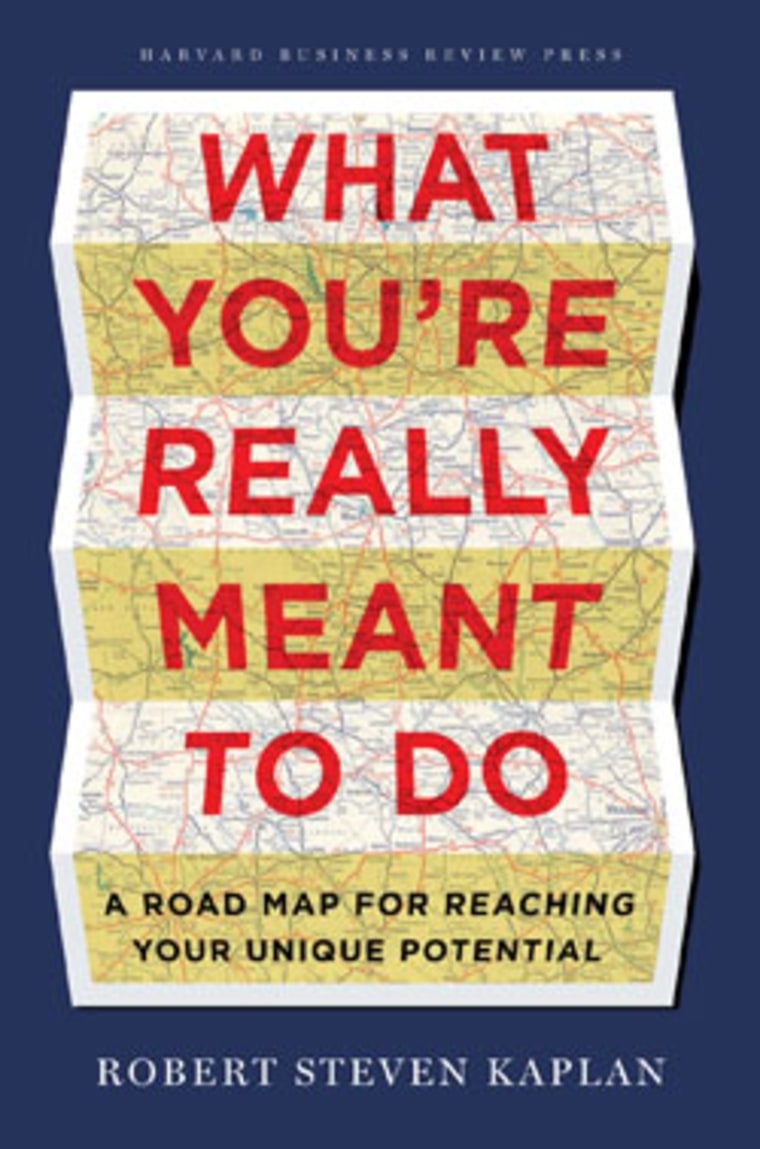Excerpt 1
Reaching Your Unique Potential
What does it mean to be “successful”? How do you achieve your dreams?
Does it mean creating an impressive list of achievements? Does it mean gaining significant wealth, status, position, and power? Maybe it means pleasing your parents, family, and friends?
I wrote this book to address these questions and to create a road map to help you achieve your aspirations. Following this road map involves taking a series of steps and answering a set of questions, all of which require you to look inward as well as outward. It also involves developing a set of new skills and habits, some of which may be challenging and uncomfortable for you.
Another Path
Having wrestled with these issues over the past thirty years, I have come to believe that the key to achieving your aspirations lies not in “being a success” but rather in working to reach your unique potential. This requires you to create your own definition of success rather than accept a definition created by others.
For many of us, navigating this road is very challenging because it forces us to understand ourselves and screen out many of the external forces that profoundly impact how we think about our careers and our lives. This path may also require you to develop a thick skin that enables you to ward off the polite ambivalence (or active disapproval) of those loved ones, friends, and colleagues who turn up their noses at certain choices you decide to make.
This book describes a different—and, I believe, ultimately more fulfilling—path. It is based on many of my own career and life experiences, as well as lessons I’ve learned in managing and advising a diverse range of people regarding how to reach their unique potential. This approach takes courage and hard work. It does not yield easy answers or get you to a final destination. It is, instead, a multistage, lifelong effort. It involves developing a different mind-set and a new set of work habits.
I first started speaking about this subject when I was running businesses in the financial services industry. Over two decades, I led a number of businesses in a variety of geographic regions of the world. I dealt with a significant number of challenging situations and managed and advised a wide range of people. These experiences helped me develop deeper insight into the role of leadership, individual development, and the nature of human potential.
When I joined the faculty at Harvard in fall 2005, I began thinking more systemically about these issues as well as teaching many of these concepts. I wrote an article on this topic in the July–August 2008 edition of Harvard Business Review. I regularly receive phone calls, e-mails, and visits from people who have read it and want to discuss how it might apply to them.
Over the years, I have advised numerous students and executives, and I have consistently observed that great companies and nonprofit organizations create an environment in which people are coached and encouraged to reach their unique potential.
In 2009, I began to teach an HBS course titled “The Authentic Leader.”1 This course was created by former Medtronic CEO Bill George based on his superb book True North.2 This experience further shaped my thinking and added a new dimension to my leadership activities and advice.
Each of Us Is Unique
Each of us has unique skills and qualities that we bring to any situation. We have different life stories, strengths and weaknesses, passions, anxieties, and idiosyncrasies. Consequently, doesn’t it make sense that the ideal path would be somewhat different for each of us? Why, then, do we often try to mimic others and shoehorn ourselves into a cookie-cutter definition of success?
Think of people you know who have chosen their own individual paths. Perhaps they have started their own business, embarked on a career that appears to have little potential to be choice that flies in the face of current conceptions of what is “hot” or “cool.” Many of these people are not famous. Others, such as Steve Jobs and Bill Gates, are celebrated on the covers of business magazines as enormous successes even though no one was cheering them on when they dropped out of college and started working in their garages.
Why did these people have the courage to choose the paths they did? Were they so talented that they would naturally have been wildly successful, no matter what course they chose? Or did they develop specific habits and a mind-set that helped them follow their own drummer?
What You’re Really Meant to Do
I believe there is a mind-set you can adopt and specific actions you can take that will help you realize your unique dreams. There are habits you can practice that will help you understand yourself better, improve your capabilities, and follow your own convictions. There are specific approaches that are useful to consider as you develop your life and career. This book is not intended to help you attain material wealth, status, or power. It is not designed to help you figure out how to become celebrated as a “winner.” It is, instead, a book about self-discovery. It is intended to help you better understand your skills, discover who you are, and define what you want. It is designed to help you develop strategies for navigating your life and career. This book describes a systematic approach for thinking and learning so that you improve your chances of reaching your own unique potential.
